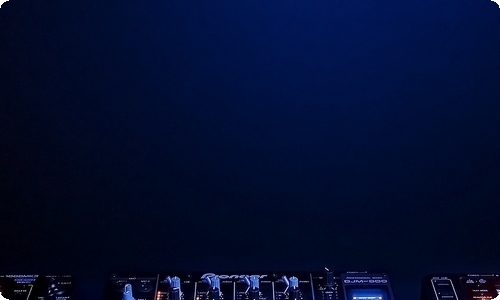Unit 12 Mainly revision的英语课堂教案

Unit 12 Mainly revision的英语课堂教案
教学目标与要点
1.掌握本单元的词汇和部分短语的用法。如:so far,send up,make up,put off,etc。
2.能正确表达两地距离,根据列车里程表进行分析。
3.能熟练谈论购物、选择电视节目、物品的产地和用途等话题,掌握相关的日常用语。
4.学习构词法:n + n → n;n + ing/-en → adj;v + er/ or →n;如:fire + place =fireplace,interest - interesting, print - printer
5.认真学习课文The Universe and Man - made Satellites,扩大知识面,了解航天等前沿科技。
6.复习、归纳动词不定式、被动语态的构成和用法及相关注意事项,省去to的动词不定式,必须加上to的被动语态等。如:help sb.do sth,be made to do sth.
本单元词组和日常交际用语
(一) 本单元词组和短语
send sb an email 给……发电子邮件
different parts of the computer 电脑的不同部件
put … together 把……连在一起;组装……指向……
put information into the computer 把信息输入电脑
provide information on a screen 在屏幕上提供信息
point at… 指向……
talk about… 谈论……
travel around… 围绕……运行
send up … into… 往……发射…。。
spaceships without people 无人的宇宙飞船
use … to do … 用……做……
send and receive messages 发射和接受信息
with the help (of) 在(……的)帮助下
all the time 始终
thanks to… 归功于;幸亏……
people from different countries 来自不同国家的人们
no smoking 禁止吸烟
computer room 微机室;电脑房
spend time alone 独自打发时间
(二)日常交际用语和句型
It is about … kilometres from … to…。 从…… 到…… 大约…… 公里。
How many kilometers by train / plane / boat / car …is it from … to…? 从……到……坐火车/坐飞机/坐船/坐轿车大约……公里。
I want to let you choose what to do。 我想让你选择该干什么。
教学建议一
教材内容分析
本单元是复习单元,我们要复习巩固前面所学5个单元的内容,主要是复习一般现在时、一般过去时和含有情态动词的被动语态和动词不定式的用法,还有表达计量和距离等的数字表示法。本单元还学习了一些常用词组和简单的构词方法。通过对课文“The Universe and Man - made Satellites”的学习,我们要了解一些有关太空的常识,来激发学习的积极性,提高学习英语的兴趣。课文中出现有现在完成时态的被动语态。同时,我们要能够读懂列车里程表,能熟练地谈论“购物、选择电视节目”等话题,掌握相关日常用语。
本单元重点例句及词语辨析
1。 I hope I can make my own computer that way someday。 我希望有朝一日我能在家里用那种方式制造我自己的电脑。
Someday (some day)和one day 都可以表示“总有一天;有朝一日”的意思。
Someday we’ll go there to visit you though you are too far away from us。 We are all going to stay together one day。 虽然你离我们很远,但有朝一日我们一定去看你。总有一天我们会在一起的。
2.I’m sure you can。 我确信你行。
be sure 意为“确信;确定;肯定”,其有三种用法:be sure of sth, be sure to do sth和be sure that从句。
(1) Are you sure that he is honest?
你能肯定他老实吗?
(2)— Are you sure of it?
— Yes, I am sure。
— 你对这事有把握吗?
— 是的,我确信。
(3)— Be sure to write to me as soon as you get there。
— Of course。
— 你一到那里一定给我写信。
— 当然。
3。 When we talk about the universe, we mean the earth, the sun, the moon and the stars, and the space between them。 当我们谈论宇宙时,我们指的是地球,太阳,月亮,星星以及它们之间的宇宙空间。
(1) 当我们谈论独一无二的事物说,要在前面加上“the”。如the earth, the sun, the moon。sky的前面必须加the。
(2) 关于space, universe, sky三个词汇的区别
space含“宇宙空间”之意,指大气层以外的太空领域,其前不用冠词,space有时指“间隙;空间”,为不可数名词。;universe含“宇宙万物”之意,指物质,如星星、太阳、月球等,其前常用定冠词the;sky指从地球上看,头顶之上的“天空”,通常与定冠词连用,多用单数形式,如果前在面有形容词修饰,则用“a(an)+形容词+sky”句式。
Nobody can tell exactly information about whe ……此处隐藏7911个字……four hours, and weeks with more or fewer than seven days。
If you make a five-day drip across the Atlantic Ocean(大西洋),your ship enters a different time zone every day。 As you enter each zone, the time changes one hour。 Traveling west, you set your clock back; traveling east, you set it ahead。 Each day of your trip has either twenty-five or twenty-three hours。
If you travel by ship across the Pacific(太平洋), you cross the international date line(国际日期变更线)。 By agreement, this is the point where a new day begins。 When you cross the line, you change your calendar one full day, backward or forward。 Traveling east, today becomes yesterday; traveling west, it is tomorrow!
总结如何来做笔记
先在课堂上讨论如何做笔记和如何使用笔记。把主要的结论写在黑板上,让学生选出一条结论在课后进行扩写,一句话或两句话即可,可使用字典等工具书,内容要有生词、主从句、动词不定式、被动语态等语法项目。第二天或第在下节课上出示范句。
范句:
字迹清楚
Accurate, legible(字迹清楚的) notes are invaluable(非常宝贵的) aids to the student who is enrolled in a lecture course。
不但在听讲时,还在课前预习课文时
Notes should be taken during lectures, and when the student is reading the texts prior to each session of the course。
能听进很多内容,只记下教师所讲内容的要点
The key to good note-taking is to be able to listen a lot and to write only as much as is needed to record the essence(精华) of a point or idea presented by the lecturer。
辨别出主要论点和意见,并记下其概要
Students should endeavor(努力去) to identify only the main points and ideas being presented and to write them down in outline(概要) form。
力争把笔记第一次记好
Students should also strive(力争) to take good notes the first time and not plan to recopy notes - or to do so only when clarity and conciseness demand it
再把笔记复习
Students should review their notes for about five minutes on the same day that they take them, and go over them again for about half an hour at least once a week, according to a regular schedule or plan。
小结
There is no course syllabus(大纲) to be memorized; instead, the examination will be based on the material presented in the lectures and textbooks。
总结复习的重要性
组织学生们用英语来讲一讲复习的重要性。教师根据学生们提出的想法及时进行总结。
参考资料
Most forgetting takes place immediately after learning。 An hour after studying or learning something new, more than 50% has been forgotten。 After one month 80% has been forgotten and so on。
This shows that review is very important。 If you review new material you have learnt, you remember much more。 Its important to review newly learnt material a little and often。 Its also necessary to have frequent breaks(间歇)。 We best remember what we learn at the beginning of a learning period and at the point where we stop。 After the break, its necessary to review what was learnt before the break - and then to continue learning the new material。
Other experiments have shown that the brain needs time to digest what has been learnt。 The time necessary for this is 5 to 10 minutes。 After a break of this time the memory will have absorbed what it has just learnt, and more will be remembered。

文档为doc格式



